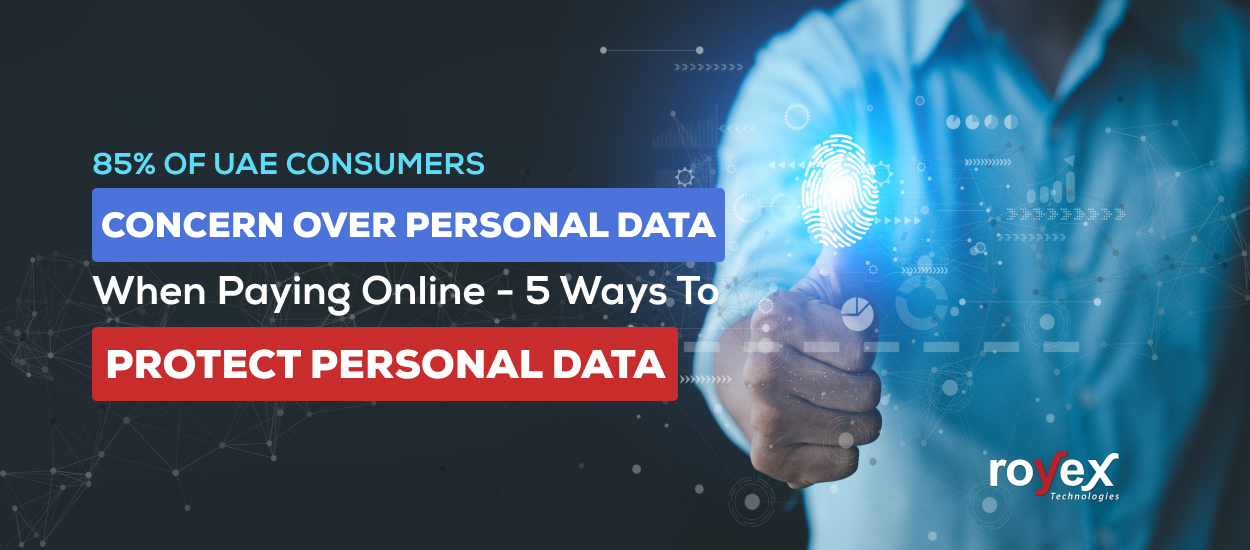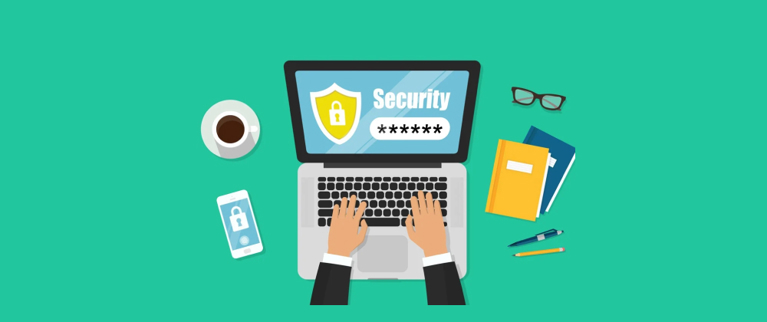
85% of UAE Consumers Concern Over Personal Data When Paying Online - 5 Ways To Protect Personal Data
Any data relating to an identified natural person, or a natural person who can be identified by reference to an identifier such as his name, voice, image, identification number, online identifier, geographic location, or one or more physical, physiological, economic, cultural, or social characteristics, whether directly or indirectly through the linking of data.
When the pandemic struck, online sales, which had been growing steadily before its arrival, were virtually overnight. Many retailers who had previously had little to no internet presence or none now found themselves scurrying to open e-commerce stores to survive. Since many consumers now prefer the convenience of not leaving their homes to purchase anything from presents to essentials, most merchants will likely be at least somewhat engaged in e-commerce in the future.
According to the 2022 Stay Secure survey, which the Department of Economy and Tourism jointly conducted (DET) in Dubai and Visa, The security of a payment option made available on a merchant website was cited by more than eighty percent (84%) of consumers as the main factor in their decision to pay with their cards online rather than via Cash on Delivery (COD). The second most essential factor (64%) for choosing a payment option was assurances that their payment information would be protected. In comparison, the least important one (17%) was the cost of goods or services.
The same pattern was seen in person, as shoppers placed the security of the merchant's payment system as the most important consideration (65%) when weighing their alternatives for digital payment methods to pay for goods and services. Safety and hygiene (45%) came in third, followed by guarantees and return policies (49%) and warranties. In the past month, three out of four of the customers polled made a digital payment, and since COVID-19, nearly half of respondents had made more digital payments in-store and online, particularly contactless ones.
Most customers (79%) indicated a high preference for digital payments over cash. They stated that they would switch stores, online shopping sites, or mobile apps based on the accepted payment methods and approach Web design companies in Dubai. According to the report, 34% of consumers prefer to tip in cash at hotels, restaurants, tourist attractions, and other services. And while most consumers (70%) claim to be confident in their ability to spot a fraud or scam, a third of those polled in the UAE still have difficulty doing so.
What Merchants Can Do
Before sending their personal information to an e-commerce site, most respondents (85%) want to know how it will be used and safeguarded. To trust digital payment methods generally, about three-quarters of respondents said they would like to understand how security technology operates. This emphasizes the significance of consumer education by payment industry stakeholders, including financial institutions, payments companies, and governments, to increase consumer trust in digital payments. Providing clear information regarding guarantees and refund possibilities, displaying bank and payment partner logos, and disclosing security measures are all actions that merchants may do to boost customer trust and the payment experience.
Consumers place a higher value on security than on cost regarding how their personal data is managed. As Visa's Head of Risk for the Middle East and North Africa, Neil Fernandes, stated, "These are crucial insights for merchants aiming to increase and sustain consumer trust in their payment offerings. Additionally, the fact that a third of consumers still cannot recognize a possible scam highlights the necessity of all participants in the payments ecosystem to continue cooperating to maintain consumer protection. Our Stay Secure campaign, now in its seventh year, has been a crucial tool for Visa, Dubai Police, and the Department of Economy and Tourism in Dubai in educating consumers about payment security and assisting businesses in meeting the growing demand for safe, convenient digital payments both in-person and online.
Five Ways to Protect Personal Data

You can maintain security against unauthorized access to your data by third parties by making a few straightforward modifications to your devices and accounts. You can also safeguard your privacy from third parties with whom you do not wish to share your information. It's simple to get going. It's difficult to go a few days after checking the news without learning about a significant data breach that could have exposed the private information of millions of consumers to thieves. Here are some suggestions to help prevent your personal information from falling into the wrong hands.
Your Digital Kingdom's Keys are Your Passwords

Would the owner of a found smartphone be able to access its information if you left it at a coffee shop or cab? That is a dreadful circumstance. Losing your smartphone is one thing, but granting the finder access to your social media, email accounts, and other personal data you may have stored on the device might have disastrous effects on your life. Use a passcode to safeguard your apps, accounts, and private information securely. Do the same with your desktop computers and even laptops.
Protect Your Identity
Never exchange passwords, and avoid using a password that is simple to guess. Make sure you replace them frequently. Use two-factor or strong authentication whenever possible to confirm identity or a transaction by combining what you know (username and password) with what you have (a credential like a card, token, or mobile phone).
Don't Click on Links or Attachments
Cybercriminals are skilled at convincing individuals to click on links that appear to be from their bank, telecom provider, electric or gas company, tax service, or other trustworthy organizations. Consider the source of information before clicking. Spelling mistakes, suspicious email addresses, and contacts from friends should all be taken very seriously. To log into your account and confirm any communications before clicking, it is preferable to input the URL of the organization in question manually. Before clicking, phone the company or your friend if you're unsure.
Make Sure the Website You're on is Secure

Ensure the URL starts with HTTPS before submitting your payment information on any website; the "s" stands for "secure." Avoid any website with glaring typographical errors, missing security information, or unfamiliar symbols. If in doubt, use a high-security web browser that shows the green EV SSL address bar and click on the VeriSign checkmark to confirm a site's legitimacy.
Avoid Using Public WiFi

True, you get what you pay for. A nice example is free public Wi-Fi. Sure, it's convenient, but the majority of free public Wi-Fi networks don't offer much in the way of security. Thus, anyone using the same Wi-Fi network might "eavesdrop" on your online behavior with the appropriate equipment. Even a password-protected Wi-Fi network is only as secure as the users who know the password. Save your transactions for a secure network, possibly at home. Use a VPN (a virtual private network) to encrypt your activity so that others using the same network cannot easily see what you are doing if you must log in or do business online while connected to a public Wi-Fi network.
As you take advantage of the best aspects of the digital world while knowing that your gadgets and the data they contain are secure, keep these suggestions and tips in mind. Participating in your own Internet security is the best way to avoid nasty online things. Your family should be aware of the dangers in the world, and you should use reliable protection software. Attackers will have fewer targets to take advantage of when more of us stick together to protect one another.
Royex Technologies is the leading web design company in Dubai, providing website development, e-commerce & mobile application development on all scales with quality & flexibility. We have already developed various websites on WordPress, Magento & Umbraco to provide to our clients. Visit our portfolio & connect with us for further details.





